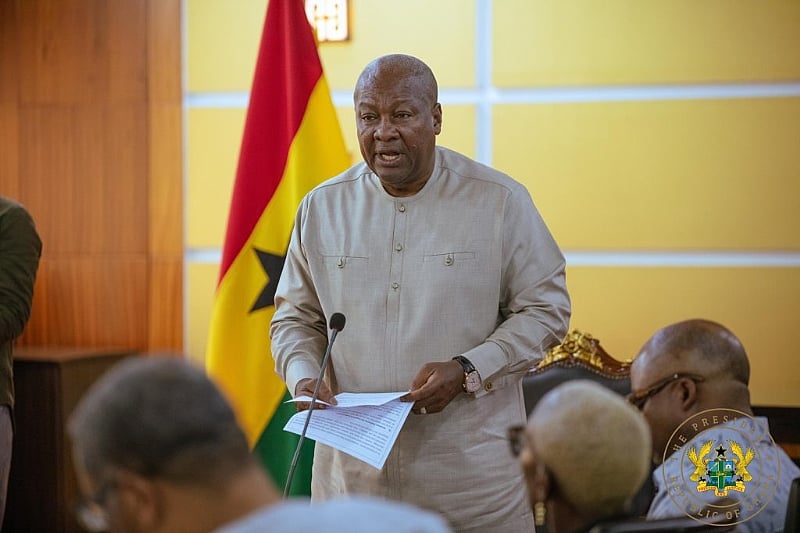The Africa Health Sovereignty Summit, convened in Accra, Ghana, on August 5th, 2025, under the leadership of President John Dramani Mahama, represents a pivotal moment for the continent’s pursuit of health autonomy. This high-level gathering, themed “African Health Sovereignty in a Reimagined Global Health Governance Architecture,” brings together African heads of state, policymakers, and prominent figures in global health to address the urgent need for a more equitable and responsive international health system. The summit aims to shift the paradigm of global health governance, moving away from donor-driven models to a system where African nations have a stronger voice and greater control over their health destinies. President Mahama’s initiative underscores the growing recognition that existing global health structures, designed in a different era, are inadequate to address the challenges faced by African nations in the 21st century.
The Accra Summit is not merely a platform for discussion; it’s a catalyst for concrete action. The summit culminates in the adoption of the Accra Initiative, a comprehensive document outlining key principles and a roadmap for achieving health sovereignty. This initiative will lay the groundwork for a transformative shift in how global health issues are addressed, prioritizing African perspectives and empowering countries to take ownership of their health systems. Central to this initiative is the creation of a Presidential High-Level Panel tasked with designing a new global health governance framework. This panel will engage in extensive consultations and analysis to develop a framework that adequately reflects the unique needs, priorities, and experiences of African nations. The summit also marks the launch of the SUSTAIN Initiative, a significant step towards driving country-led and investment-driven health systems across Africa.
The call for African health sovereignty stems from the recognition that despite advancements in global health, existing progress remains fragile and inequitably distributed. Factors such as weakened multilateralism, donor fatigue, and the emergence of new health threats have exposed the vulnerabilities of the current global health architecture. African nations have often found themselves on the receiving end of aid and interventions, with limited agency in shaping the policies and programs that directly impact their populations. This dependency has created a system where external priorities often overshadow the specific needs and contexts of African countries. The summit aims to disrupt this dynamic, advocating for a new model where African nations are not just recipients but active shapers of global health solutions.
The Accra Compact, another key outcome of the summit, articulates Africa’s collective vision for health sovereignty and equitable global health governance. This document serves as a powerful statement of intent, outlining the principles and commitments that will guide African nations in their pursuit of greater control over their health futures. It represents a unified voice demanding a more just and representative global health order. The compact underscores the importance of collaboration and partnership while simultaneously emphasizing the need for African leadership and ownership. It signals a shift from dependence on external actors to a model of self-reliance and shared responsibility in achieving health security for all Africans. By endorsing this compact, African nations are collectively affirming their commitment to building resilient and sustainable health systems capable of meeting the diverse health challenges facing the continent.
President Mahama’s leadership in convening this summit reflects his long-standing commitment to strengthening health systems in Africa. His prior experience, including coordinating the regional response during the 2014 Ebola crisis, has provided him with valuable insights into the complexities of navigating health emergencies and the critical need for regional collaboration. His June 2025 speech at the Global Summit on Health and Prosperity in Brussels further highlighted his advocacy for a more equitable and effective global health governance architecture. By spearheading this summit, he continues to champion the cause of African health sovereignty, urging a fundamental shift in power dynamics within the global health landscape. His vision emphasizes the importance of not only securing resources but also ensuring that African nations have a decisive voice in shaping the rules and policies that govern global health.
The Accra Summit aligns with broader continental efforts to strengthen health systems and promote self-reliance in health. It complements the work being done by leaders like President Paul Kagame of Rwanda and the African Union to bolster health financing and coordination across the continent. These combined efforts demonstrate a growing momentum towards achieving greater health security and autonomy for Africa. By working together, African nations are sending a clear message to the international community: they are determined to take control of their health destinies, to build resilient and responsive health systems, and to reshape the global health landscape to better reflect the needs and priorities of their people. The Accra Summit is not just a meeting; it’s a declaration of intent, a pivotal moment in the journey towards a healthier and more equitable future for Africa.


